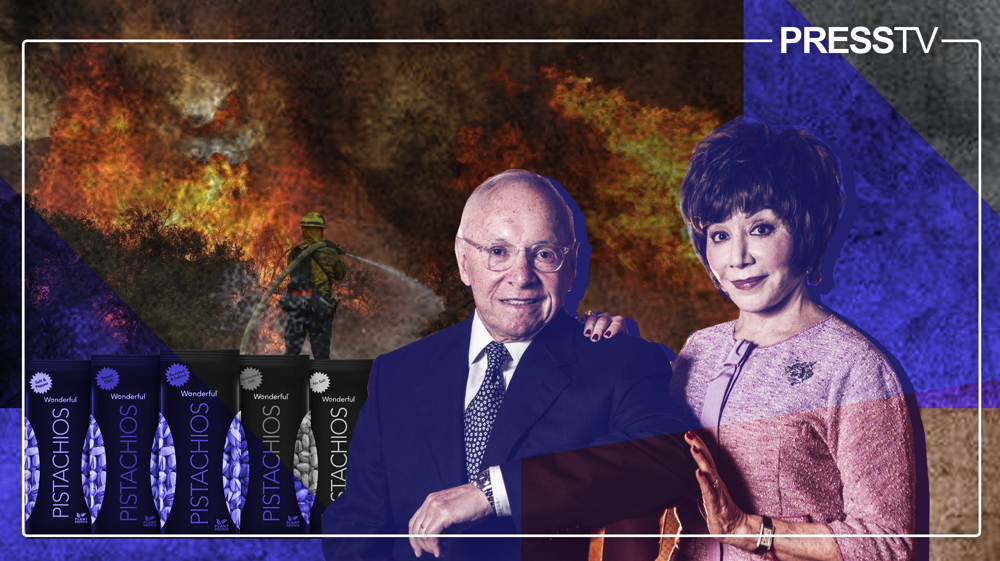Today’s zeitgeist: One word to explain the world
What is fueling nationalist movements around the globe? What is the root cause of Brexit, the crises in the Middle East, and the Donald Trump phenomenon? What do you think can be the zeitgeist of today -- a single word to explain the world?
The German word zeitgeist means the spirit of the age and connotes a dominant drive embedded in the minds of the members of any society in a particular period of time that motivates their actions.
To make an educated guess, let’s see what they have in common.
Racism and economic grievances can be considered plausible candidates, but they have been around since at least the dawn of the century. They cannot be translated into tangible collective realities without a powerful force, something like a great war or depression, momentous enough to transform them into mass movements.
It is worth remembering that the world has already experienced big wars and recessions, and social democracy and liberal movements can be viewed as the consequences of such sufferings.
What about globalization and technological advances? Can they justify the anguish and anxiety that enforce the majorities to move the history in reverse gear and ride the world back to the political ferment of the first few decades of the 20th century? Industrialization and automation may have led to unemployment – and thus economic woes -- in some societies, but what is the underlying sentiment that makes the middle class move from global liberalism to local populism?
Socialist left-wing and nationalist right-wing movements are gaining momentum throughout the world. In Japan, Prime Minister Shinzo Abe is using a nationalistic voice, President Vladimir Putin is reviving the Russian nationalist sentiment, the Five Star Movement of Italy won the mayorship of Rome and Turin a few weeks ago thanks to sheer populism, Brexit is the result of years of campaigning by the UK Independence Party (UKIP), and Trump’s presidential campaign slogan -- Make America Great Again -- is an epitome of a nationalist attitude. Trump and the nearest British thing to him -- UKIP leader Nigel Farage -- are skillfully exploiting the air of despondency and distrust in the masses to push their own agenda ahead.
Xenophobia is the word
Merriam-Webster dictionary defines xenophobia as the fear and hatred of strangers or foreigners or of anything that is strange or foreign. This is, ostensibly, the key factor behind all of the conundrums of our time.
Those who voted for Britain to withdraw its EU membership or those who support Trump are most likely warned against the economic risks of their decisions but simply choose to ignore their hunch and remain unpersuaded by the existing evidence that proves immigrants are bolstering the British and US economies.
Trump and Farage – both businessmen-turned-politicians – know well how to manipulate forces of xenophobia and prejudice to fuel their way through personal gains because there is no stronger drive than fear.
It is counter-intuitive that members of a society vote against their own interests as it basically undermines the core assumption of democracy. There is only one explanation here: most of the people of our age will eagerly pay a high price only to have a town of fewer strangers.
It is no coincidence that supporters of nationalist parties trumpet their ideologies in a similar fashion. They all feel similarly threatened by the false pictures that politicians paint for them because the gains of immigration are state-level and might be felt less by individuals. Brexit highlighted the reality that feeling can beat evidence.
Following the vote, there was a surge in xenophobic speech and graffiti across the UK as xenophobic sentiment started to manifest itself in society and social media. In many cities, immigrants and their descendants were stopped in the street and ordered to leave Britain.
Alexandra Cirone with the London School of Economics says, “Framing this globalization problem as immigration can also tug on the heartstrings of potential voters, regardless of the actual facts.”
Alicja Kaczmarek, who runs the Polish Expats Association, in Erdington, Birmingham, calls the Brexit result “shocking,” and said, “I don’t think we’ve been prepared. There is a mixture of anxiety, fear and shock that Britain voted and xenophobia and populism won above the community of values.”
Demographic hope
In a precise examination of the demographic breakdown of the Brexit data, Torsten Bell, the director of the UK economic think tank Resolution Foundation, debunked the well-advertised hypothesis of the pro-Leave camp that "areas hardest hit by the financial crisis, or those where migration is said to have held down wages, voted heavily to leave." He proved there is no correlation at all between areas where wages have fallen since 2002 and the share of votes for the Leave campaign in the referendum.
A promising finding of Bell’s analysis was the fact that the majority of the British youth, whose wages were hurt most by the 2008 recession, were against the Brexit, and the support for leaving the bloc was concentrated among older Brits, who had less reason to feel threatened by wage competition with immigrants.
In his Lectures on the Philosophy of History, Philosopher Georg Hegel said that “no man can surpass his own time, for the spirit of his time is also his own spirit."
When the zeitgeist of an era is xenophobia, it is upon each and every of us to wake up more mindful in the universe and fight irrational alienation; moving from the bigotry on the basis of national origins to thinking well of our fellow species.
Tehran rejects Elon Musk’s role in release of Italian journalist as ‘media fantasy’
Pezeshkian: Iran open to talks but prepared to crush enemy if attacked
Araghchi: Iran-Russia strategic deal step toward ‘more just world’
UNRWA unraveled amid Israel's allegations, reduced intl. support
Palestinian journalist, a Sobh Media Festival awardee, killed in Gaza hours before truce
Jan. 15: ‘Axis of Resistance’ operations against Israeli occupation
VIDEO | Fears, hope in Gaza amid intensified ceasefire efforts
VIDEO | Press TV's news headlines










 This makes it easy to access the Press TV website
This makes it easy to access the Press TV website